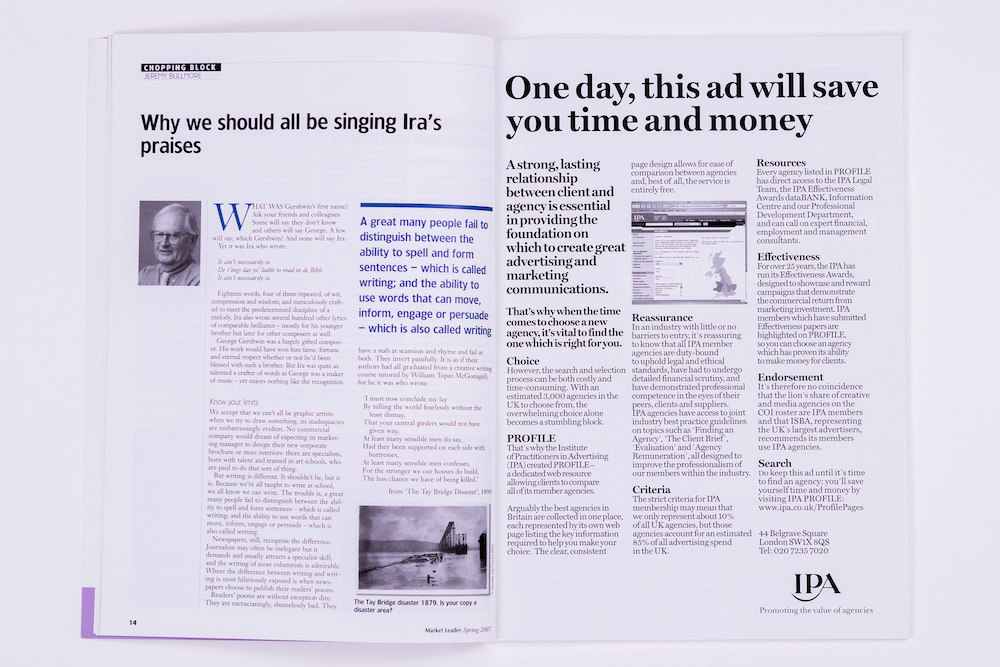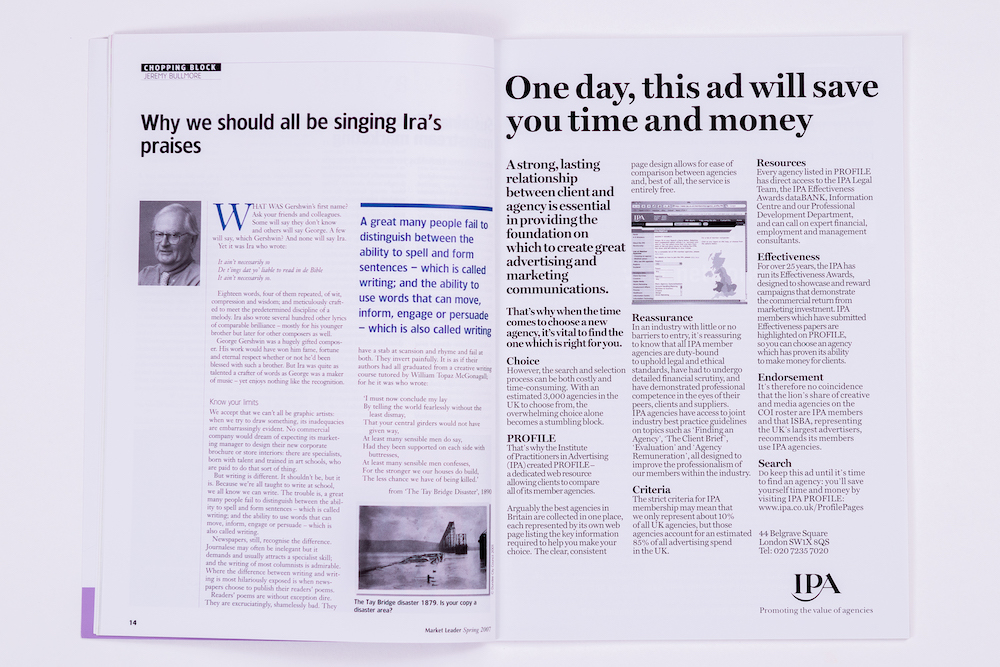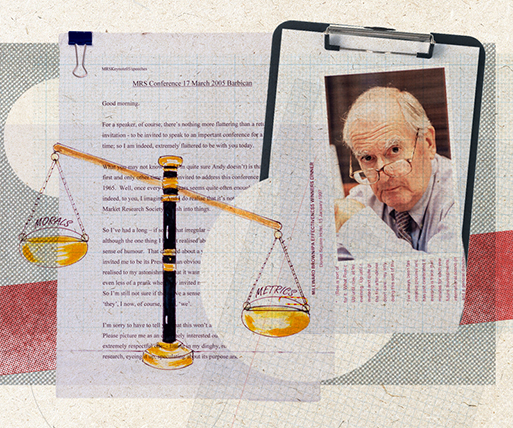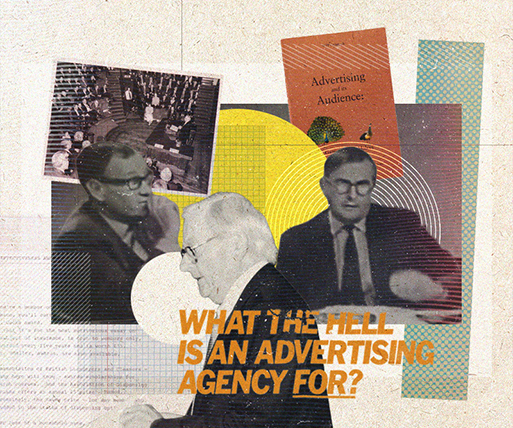Why we should all be singing Ira’s praises, 2007
- Date: 2007
- Publisher: Market Leader
- COMMUNICATIONS
With an opening that bears witness to Jeremy’s love of show music and lyrics over heavy orchestral works, he references Ira (older brother of George) Gershwin. Few people have the talent to write persuasively, he says, but everybody in management, marketing and sales thinks they can, and thus that they do not need to hire professional copywriters.
Copy tests, he argues, are instantly revealing and yet: “Today, for reasons I've yet to understand, copywriters get hired without having to prove they can write. And it shows. Quite often, members of creative teams take it in turns to be the copywriter. And it shows. Copy in print advertising has now become so unimportant that clients are expected to approve layouts before the body text has even been written. It's then treated by the art director as a design element and reversed out of lemon yellow.”
Why we should all be singing Ira’s praises
The results are painfully apparent from the appalling quality of most direct mail. The key failure is that the writers lack the imagination to understand the state of mind of the intended recipients.
What was Gershwin's first name? Ask your friends and colleagues. Some will say they don't know and others will say George. A few will say, which Gershwin? And none will say Ira.
Yet it was Ira who wrote:
It ain't necessarily so
De t'ings dat yo' liable to read in de Bible
It ain't necessarily so.
Eighteen words, four of them repeated, of wit, compression and wisdom; and meticulously crafted to meet the predetermined discipline of a melody. Ira also wrote several hundred other lyrics of comparable brilliance – mostly for his younger brother but later for other composers as well.
George Gershwin was a hugely gifted composer. His work would have won him fame, fortune and eternal respect whether or not he'd been blessed with such a brother. But Ira was quite as talented a crafter of words as George was a maker of music – yet enjoys nothing like the recognition.
KNOW YOUR LIMITS
We accept that we can't all be graphic artists: when we try to draw something, its inadequacies are embarrassingly evident. No commercial company would dream of expecting its marketing manager to design their new corporate brochure or store interiors: there are specialists, born with talent and trained in art schools, who are paid to do that sort of thing.
But writing is different. It shouldn't be, but it is. Because we're all taught to write at school, we all know we can write. The trouble is, a great many people fail to distinguish between the ability to spell and form sentences – which is called writing; and the ability to use words that can move, inform, engage or persuade – which is also called writing.
Newspapers, still, recognise the difference. Journalese may often be inelegant but it demands and usually attracts a specialist skill; and the writing of most columnists is admirable. Where the difference between writing and writing is most hilariously exposed is when newspapers choose to publish their readers' poems.
Readers' poems are without exception dire. They are excruciatingly, shamelessly bad. They have a stab at scansion and rhyme and fail at both. They invert painfully. It is as if their authors had all graduated from a creative writing course tutored by William Topaz McGonagall; for he it was who wrote:
'I must now conclude my lay
By telling the world fearlessly without the least dismay,
That your central girders would not have given way,
At least many sensible men do say,
Had they been supported on each side with buttresses,
At least many sensible men confesses,
For the stronger we our houses do build,
The less chance we have of being killed.'
Readers' dreadful poems are indulged in a way that readers' dreadful watercolours never would be. We accept that drawing, painting and composing demand inherent talent and application; but since everybody can write, writing obviously doesn't.
COPY TEST YOUR COPYWRITER
There was a time when advertising agencies never hired copywriters until they'd taken and passed a copy test. Copy tests are instantly revealing. The content of the test hardly matters (though they shouldn't be about advertising); you can tell within seconds whether the answers have been written by a writer or not. I once interviewed a deeply unprepossessing and churlish youth and was about to return his papers to the personnel department with some dismissive comment when, belatedly, his copy test arrived. It was sharp, perceptive, original and succinct. He became a valued copywriter and remained one for years.
Today, for reasons I've yet to understand, copywriters get hired without having to prove they can write. And it shows. Quite often, members of creative teams take it in turns to be the copywriter. And it shows. Copy in print advertising has now become so unimportant that clients are expected to approve layouts before the body text has even been written. It's then treated by the art director as a design element and reversed out of lemon yellow.
LOOK IN YOUR LETTER BOX
But the most disgraceful commercial writing of all is to be found in the letters sent out in their millions by huge companies. You probably get half a dozen a week.
Sending out a few million letters is an expensive business. Most such letters are marketing letters: they hope to persuade us to do something to the sender's advantage: to change our utility supplier, to upgrade our broadband, to pay by direct debit, to test drive the new SX 590 CDI 4x4, to support an appeal, to top up an ISA.
They're signed by marketing managers, sales directors, customer relations officers and chief executives. And the horrible truth is only too apparent: not only have these people signed these letters, they've written them as well.
No doubt these are all excellent chief executives and customer relationship officers. But we'd never expect them also to be excellent caricaturists – so why are they expected to be excellent writers? (Because they learnt to write at school, that's why.)
Jean Aitchison, Professor of Language and Communication at Oxford, has said this: 'An effective persuader must be able to imagine events from another person's point of view.' For the would-be persuader, it's a more crucial ability than any fancy knack with words, but the writers of dismal corporate missives don't even attempt to acquire it. Much of the time these letters are fully comprehensible only to those who sign them – and rarely do they give a moment's thought to the state of mind of the recipient.
I have a small collection of taken-from-life communications that illustrate just how common a form of blindness this is. A couple of years ago, a Times reader wrote to say that his delivery of geraniums contained the following note: 'If this leaflet is not in this box then rest assured it will follow in one of your other boxes.' And this is from a United Airlines inflight safety manual: 'If you are sitting in an exit row and you cannot read this card, please tell a crew member.'
The quality of the writing in most commercial letters is poor in all other respects as well. The grammar is dodgy, the language is tired and riddled with jargon, and the sequence of argument is poorly presented. Quite often they begin with that most elementary of errors: 'As a discriminating person, I know you'll be interested ...'
But these letters are bad letters not because they transgress Fowler or Lynne Truss. They're bad because they're inefficient. They fail to fulfil their primary function: they fail to persuade. And while they're about it, they also make us question the intelligence and empathy of the very companies they want us to love. It's no disgrace if businessmen can't write persuasively. That's not what they're paid for. The disgrace is not to employ someone who can.





